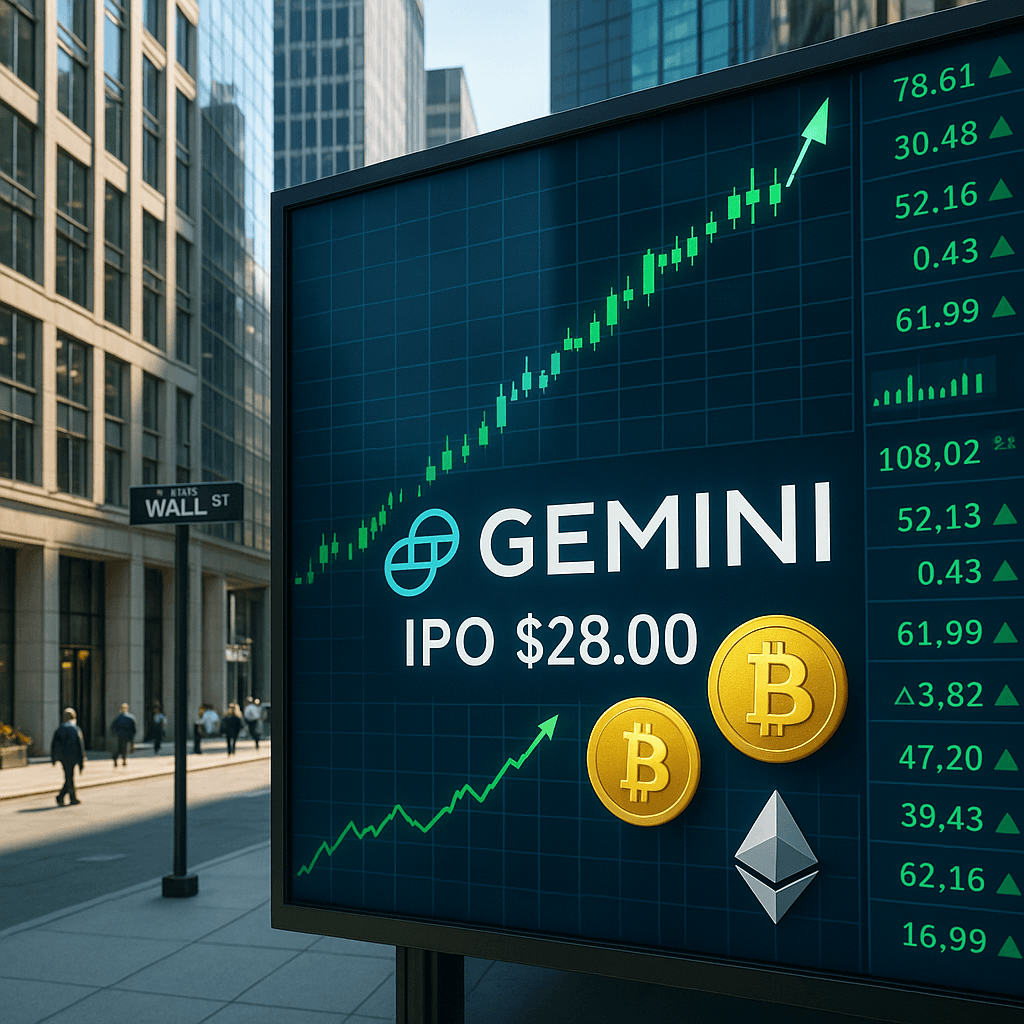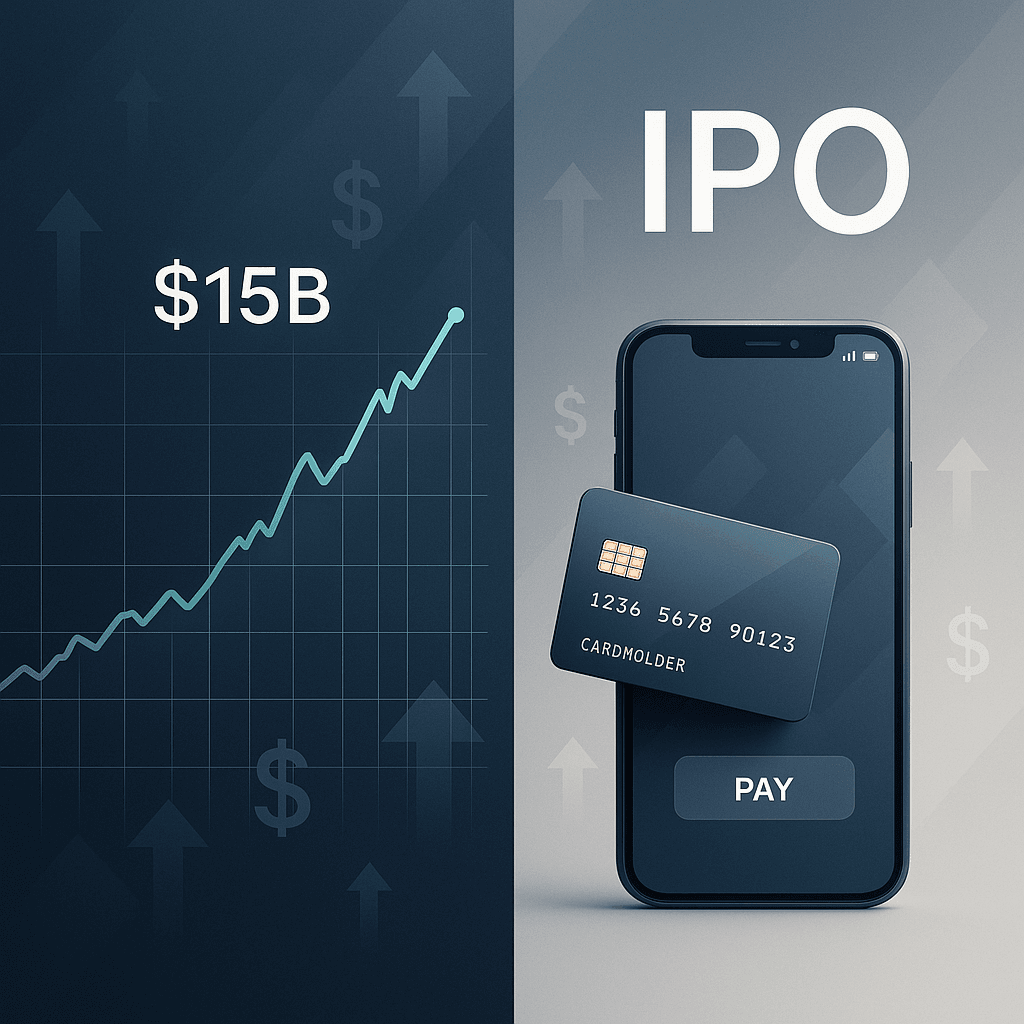The Winklevoss brothers just delivered crypto's biggest IPO win of the year. Gemini shares surged 14% on their first day of Nasdaq trading after the cryptocurrency exchange raised $425 million in an initial public offering - pricing well above expectations and validating institutional appetite for digital asset infrastructure plays.
Gemini just proved that crypto IPOs aren't dead - they're just getting started. The Winklevoss twins' cryptocurrency exchange delivered a textbook public debut Friday, with shares closing up 14.3% at $32 after opening at $37.01 on the Nasdaq.
The performance caps off a remarkable turnaround for the New York-based company, which priced its IPO late Thursday at $28 per share - well above the expected range of $24 to $26 and miles beyond the initial $17-19 target. That pricing valued Gemini at roughly $3.3 billion before trading began, making it one of the year's most successful crypto market debuts.
"Bitcoin is gold 2.0, it can easily go 10x from here," Tyler Winklevoss told CNBC's Squawk Box Friday morning, hours after the opening bell rang on their public journey. The twins, who've been predicting Bitcoin will hit $1 million within a decade, watched their own company's stock peak at $45.89 during Friday's session.
But the celebration comes with asterisks that investors can't ignore. According to SEC filings, Gemini posted a net loss of $159 million in 2024, and hemorrhaged $283 million in just the first half of this year. That's despite holding more than $21 billion in assets on its platform as of July's end - a figure that underscores both the company's reach and the volatile nature of crypto trading revenues.
The timing couldn't be more interesting. While traditional tech IPOs have struggled this year, Gemini's success suggests institutional appetite for regulated crypto infrastructure remains strong. The company operates primarily as a cryptocurrency exchange but has diversified into stablecoins, crypto-rewards credit cards, and institutional custody services - exactly the kind of regulated, compliance-first approach that institutional investors have been demanding.
Cameron and Tyler Winklevoss have been building toward this moment since 2014, when they founded Gemini with the explicit goal of bringing Wall Street-level regulation to crypto trading. Back in 2013, they became the first to apply for a bitcoin ETF - an application the SEC rejected over fraud and market manipulation concerns, setting the stage for the decade-long regulatory battle that only recently resulted in approved bitcoin ETFs.









